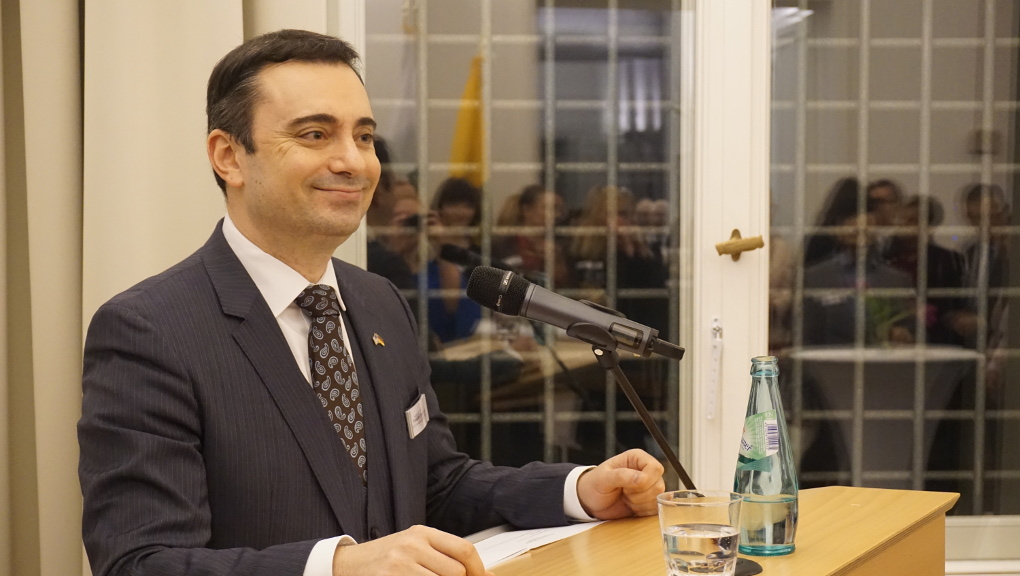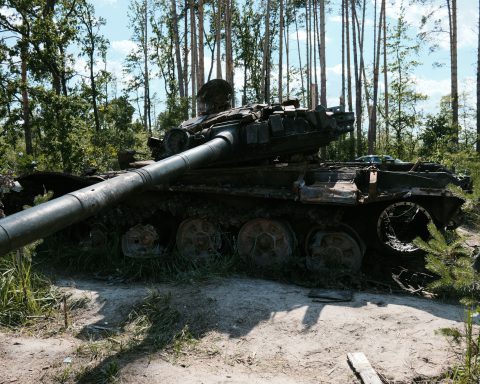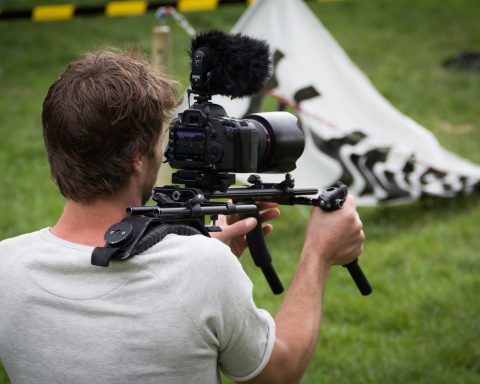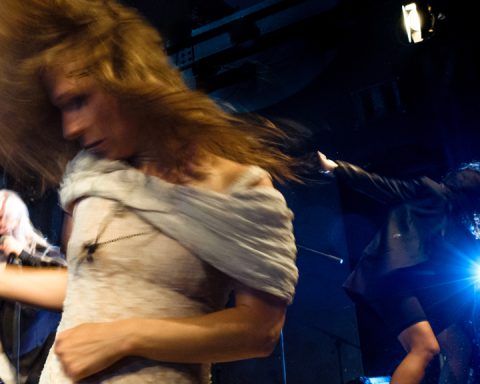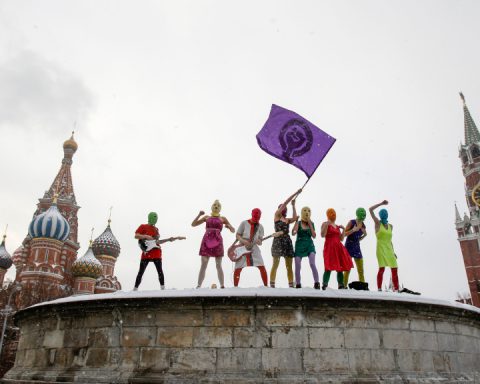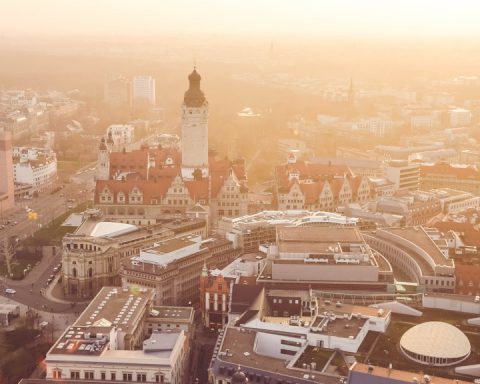What’s a typical day like for the US Consul in Leipzig? While the first part of my recent interview with Timothy Eydelnant focused on political relations between the US and Germany, this second part tries to get a bit more into the level of the person. I asked him questions about his experience as a diplomat over the past two decades, from genesis to the quotidian to some of his most memorable moments.
Although his is not a 9-to-5 job, and no two days are completely alike, certain elements of it are more or less always there.
Like you and me, US Consul Eydelnant tells me he keeps his smartphone close and checks his e-mail as soon as he wakes up in the morning. That’s in case Washington has sent some urgent message overnight, given the time difference, he says.
There’s a lot of paperwork to deal with, too. As you might expect, Eydelnant’s routine involves looking into political cables the US Consulate General is producing (like on the aftermath of the German elections), and signing off on thank-you letters (like one written to former Saxon Minister-President Stanislaw Tillich).
On the public diplomacy front, Eydelnant might talk to reporters, bloggers or students locally about the US, and go to one or more social functions in one day. In recent months, he appeared at the official opening of the ACU campus and then the Paulinum in Leipzig, and a consulate event showcasing Southern US culture and fare.
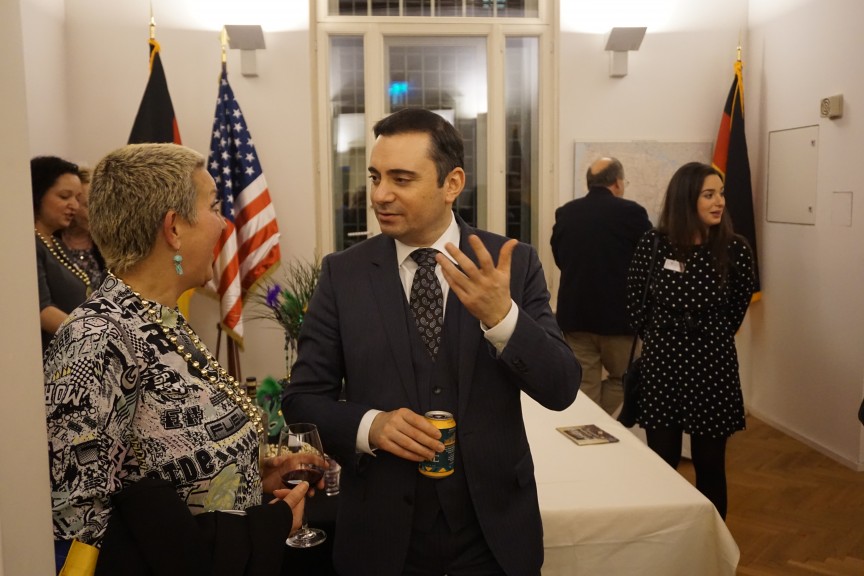
As his Leipzig-based office represents Saxony, Saxony-Anhalt and Thuringia, the consul also does a lot of day trips.
“I happen to be in Leipzig today; the other day I was in Dresden,” Eydelnant added during our interview in his office. “And when we’re in Dresden, also we try to visit American businesses. For example, I visited the Philip Morris factory in Dresden, then I had meetings with the Ministry of Economy [and] with different parties [like] the Green Party in Dresden. The day prior I was in Magdeburg also to meet with the Minister of Economy of Saxony-Anhalt. So [the day] involves a wide variety of different engagements… and going to bigger towns and smaller towns.”
Before coming to Leipzig in mid-2017, the diplomat had been stationed elsewhere in Europe (Moscow, Helsinki, Vienna), the Middle East (Jerusalem and Basra), and the Americas (Rio de Janeiro and Washington, DC). For instance, he’s led efforts on fraud prevention in Brazil, coordinated US humanitarian response to Syrian refugees in the Middle East, and monitored human rights issues surrounding the Christian minority in Iraq.
Before joining the US State Department, Eydelnant worked as a political asylum officer for the US Immigration and Naturalization Service. At age 16, he’d himself sought asylum in the US, migrating with his family from what was then the Soviet Union (Minsk, Belarus). The future consul would go on to study international relations at Georgetown University in DC.
I asked him why he became a diplomat.
“I don’t know if I’d have answered it back then the same way,” the consul admitted. “But partially, probably, by virtue of being born in a country that was separated, by sort of the Iron Curtain from the rest of the world, a country where one couldn’t easily travel. I remember… as a little kid reading an encyclopedia with descriptions of all the countries, and it all sounded very exotic to me. But you could only imagine how things looked like. I tried to memorize how flags of different countries looked like. So when I had an opportunity to study what I actually wanted to study, I thought to myself, ‘that’s what I want to do, I want to travel the world, I want to represent the country that accepted me.’ I think that’s how it slowly developed into where I am today.”
Some born travelers turn to photography or reporting to harness their passion and curiosity into a profession. Eydelnant turned to diplomacy – a career which, beyond its routine, has perhaps been as rewarding as it has been harrowing. Here he shares more of his story with us.
Timothy Eydelnant interview – Part II: life as a diplomat
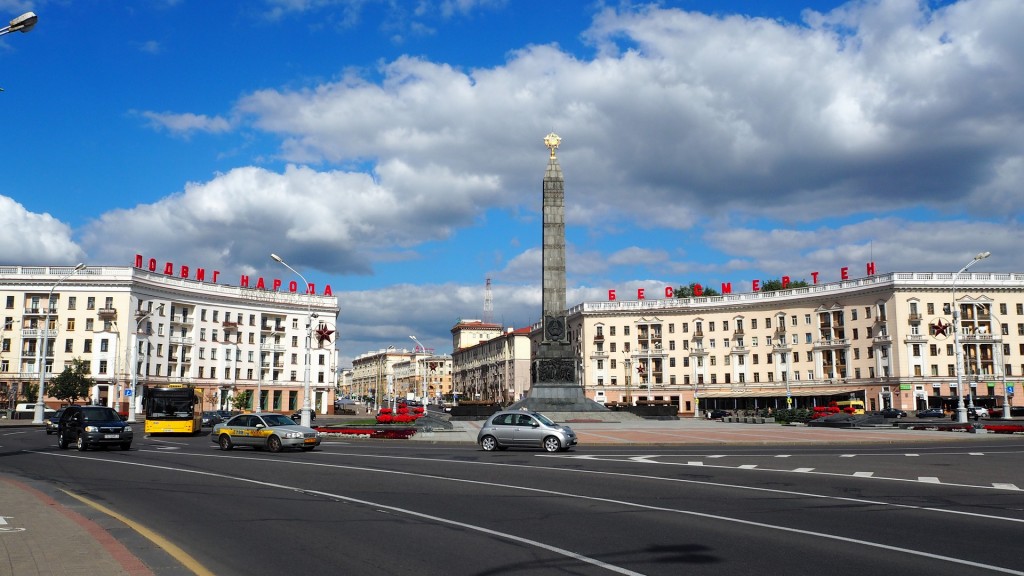
Ana Ribeiro: How do you channel your background and personal experiences into your diplomatic work in different locations?
Timothy Eydelnant: You know, it always comes up. The other day I was telling someone in Dresden that I somehow happen to use the Russian language in all of my posts, including Rio de Janeiro. Here, for example, I met with the head of the Jewish community, Küf Kaufmann, who was born in the former Soviet Union, so all of our conversation was in Russian.
I think the multicultural background that I have is very much of help when dealing with the public. It opens another door, so to speak, it’s another topic of conversation. There’s a lot of interest, for example, here in Germany, in my experience working in the refugee section of the US Department of State. I get a lot of questions on that, but not only on my experience leading the [team for] Syrian humanitarian affairs, but also sort of my upbringing, my life story.
I think it’s of interest to people in general. I think we live in a very globalized world. So even for people here in the east of Germany who have not really traveled much or have not that much of a world view, I think nowadays it’s more pertinent to them, it’s more interesting for them to talk to someone who comes from a background of different cultures and represents the United States.
My life story has been of help, and of interest to most of the people in the places I’ve served.
AR: How would you compare your time in different posts?
TE: As one looks back, every place is special in its own way. It’s hard to say, “I like this more than I like that.” I think especially after you depart that place, you usually are left with fond impressions. Even in a place like Iraq, as I look back, it certainly was a war zone, it certainly was a very dangerous place to be. But you have these highlights of something positive, something good that we’ve done as a country, as a mission.
You know, Brazil was not an easy place to serve, to be honest with you. I mean, Rio de Janeiro was a high-crime environment. But that being said, I still think there is no more beautiful physical setting in the world than Rio de Janeiro. And our work with, for example, the favelas, going to donate toys to children [is also something memorable].
In Iraq, working with kindergartens and the Christian community, donating food, at the time of the war. Those are the types of things that you remember after you leave a place… not the political connections, not the political meetings, but it’s actually these people-to-people relationships.
In Austria, something that sticks in my mind is going to a small town and meeting with the chief of police there. He was an older man and he sat there with me and he said, “You know, after World War II, I always had this image of Americans when they came and they brought food, it was the Marshall Plan, and jazz music and everything else, but I never in my life met an American, I never traveled to the United States.” So for him, that special moment was sitting there at the table with the American consul and talking to him, and finally meeting a real American.
Making marks in people’s lives as you go along from country to country, I think that’s what stands out for me and probably most of my colleagues.
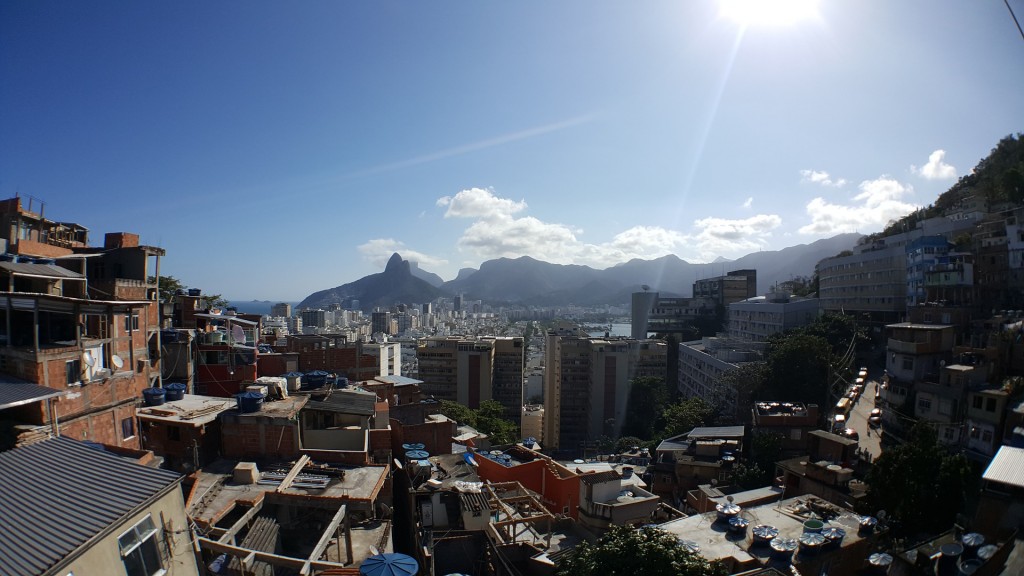
AR: What was the most dangerous experience you had in Iraq?
TE: At the time [2010-11] there wasn’t yet the consulate, it was called “provincial reconstruction team” in Basra, in the south of Iraq. When we had meetings with the city of Basra officials, with the mayor of Basra, we had to travel in a military convoy, under the protection of the military.
So one time, when we traveled from the location of the consulate to the city, we were hit by an explosive device which was planted right on the side of the road. And a young soldier who was sitting in the front was injured.
So it just shows you also the difficulties and the dangers of modern-day diplomacy, depending where you are in the world. Some of my German counterparts ask me here, “is it really necessary that you come with security protection?” Perhaps not. But in the world we live in, things are just purely unpredictable, and you cannot say what is safe and what is not safe, unfortunately.
Especially if you’re in a war zone and a dangerous environment, that’s an example of the diplomacy that we still conduct with countries, even in a difficult operational environment. My first boss in the foreign service, when I worked in Jerusalem, was Ambassador Chris Stevens, who died five years ago in Benghazi, during the attack on the US Mission in Libya.
He was my mentor, he was a very influential person for me professionally, and his death was a shock.
But it shows that diplomats are people in suits who oftentimes go without protection, without any weapons, and work for the benefit of not just the United States, but bilateral and multilateral relations with countries. And we do it oftentimes in fairly dangerous circumstances.
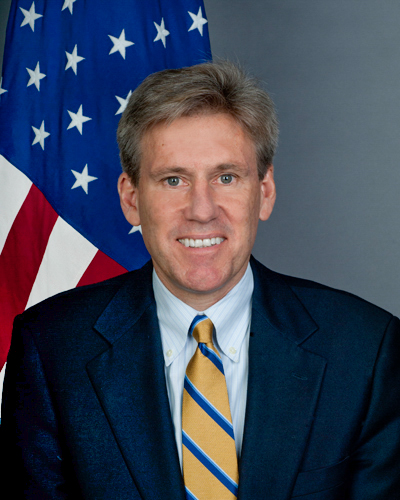
AR: What’s an emergency situation you particularly remember assisting US citizens with?
TE: When I was in Brazil, that was the year when there was an Air France crash [2009], the flight from Rio de Janeiro to Paris. There were a number of US citizens on that flight.
What happens in such situations is our American citizen services unit goes into emergency mode right away. We work with local authorities, in that case we worked with Brazilian authorities in the airport, in the government, with French authorities, to try to see who were the passengers on that flight.
Then comes the point of contacting the families, and that’s very difficult work that diplomats also do. So we have to contact the families, be the first ones sometimes to let them know what happened. And then the families would come, in this case, to Brazil, so you work with them, you meet them at the airport.
I think no other country, to be honest with you, does as much for its own citizens, in my experience, as the United States, and the American foreign service, American diplomats do. Oftentimes, we act as social workers, we act as a liaison between local country authorities and counselors, we go to memorial services. I was at the memorial service in Rio Janeiro at the cathedral for that Air France flight. It’s just one example of many.

AR: What is the funniest thing you have gotten in diplomatic mail?
TE: That’s a tough one. I think the vast majority of the public [does] not write to the consulate or the embassy, because they think their letters are either not read or do not make it, which is not true. Actually, we read pretty much all the mail that comes in here, be it hard copies or via electronic means. And you get different requests from time to time.
I remember when I worked in Moscow, there was a request for someone to walk from the far east of Russia to Alaska. [They wanted to know] whether they would be able to walk through the ice once the ice forms, and if they need a visa to actually cross the ice shelf between the far east of Russia and the United States.
You know, you get different requests from different people. Sometimes they’re funny, sometimes they’re serious, sometimes their requests have some ideas that we haven’t thought of, which we try to pursue as much as possible with our contacts. We welcome people writing to us, we welcome people interacting with us on social media, Facebook, Twitter.
As a rule, we always try to respond, to most inquiries, unless they’re completely outlandish. We try to really interact with the public as much as possible.
I want to make sure that people know that we are not really ‘Fortress America.’
We sometimes physically appear so for security reasons, but nowadays with social media being active, we very much welcome this two-way interaction with the public. And if there’s criticism of us or if there are positive things to say about us, we welcome comments – from your audience as well.
Cover shot: US Consul Timothy Eydelnant gives a speech opening the consulate’s New Year celebration. (Photo: US Consulate General Leipzig)

